 | John Taylor - Mathematics - 1707 - 608 pages
...two Square r, then V*t obtufe : If they be equal^ 'tis ri ht ^ // the Square of the faid Side be left than the Sum of the Squares of the other two Sides, the Angle is acute. PROP. §3. PROP. II. Two fide f, and an Angle oppojite to one of them in an Oblique-angled... | |
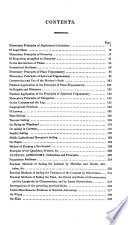 | Edward Riddle - Nautical astronomy - 1824 - 572 pages
...removed, by the consideration that when the square of the side opposite the angle computed is greater than the sum of the squares of the other two sides, the angle must be obtuse ; otherwise the angle is acute. As a small arc can be found more correctly by even proportion... | |
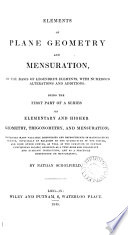 | Nathan Scholfield - 1845 - 894 pages
...XXIV. immediately follows, that is, it the square of any side of a triangle be equivalent to the sum of the squares of the other two sides, the angle opposite the former shall be right; for these propositions show, that if such equivalence exist, the angle can neither... | |
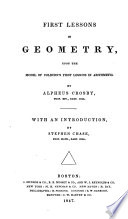 | Alpheus Crosby - Geometry - 1847 - 190 pages
...aACD ? ni ADC yx BCD? .-. InfDBC, BCawBD? •». But, as AD = AC, BD sw BA + AC ? § 78. THE OR. X- Any side of a triangle is less than the sum of the other two. [Proved by the aid of Theor. IX] $79. a.) AsBC<BA + AC, BC — ACswBA? 30.3-. And BC —... | |
 | Elias Loomis - Conic sections - 1860 - 246 pages
...each, and the angle A to the angle D. Therefoxe, if two triangles, &c. PROPOSITION VIII. THEOREM. v Any side of a triangle is less than the sum of the other-two Let ABC be a triangle; any one of its aides is less than the sum of the other two, viz.:... | |
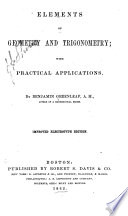 | Benjamin Greenleaf - Geometry - 1862 - 518 pages
...BOOK I. 61. Cor. Therefore every equiangular triangle is equilateral. PROPOSITION IX. — THEOREM. 62. Any side of a triangle is less than the sum of the other two. In the triangle ABC, any one side, C as AB,is less than the sum of the other two sides,... | |
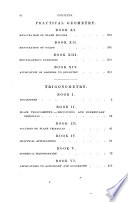 | Benjamin Greenleaf - Geometry - 1861 - 638 pages
...ABC is 61. Cor. Therefore every equiangular triangle is equilateral. PROPOSITION IX. — THEOREM. 62. Any side of a triangle is less than the sum of the other two. In the triangle ABC, any one side, as AB, is less than the sum of the other two sides, AC... | |
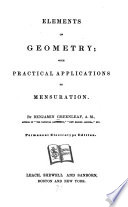 | Benjamin Greenleaf - Geometry - 1863 - 504 pages
...isosceles. 61. Cor. Therefore every equiangular triangle is equilateral. PROPOSITION IX. — THEOREM. 62. Any side of a triangle is less than the sum of the other two. In the triangle ABC, any one side, as AB,is less than the sum of the other two sides, AC... | |
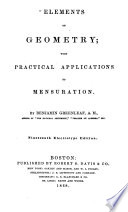 | Benjamin Greenleaf - Geometry - 1868 - 340 pages
...isosceles. 61. Cor. Therefore every equiangular triangle is equilateral. PROPOSITION IX. — THEOREM. 62. Any side of a triangle is less than the sum of the other two. In the triangle ABC, any one side, as AB, is less than the sum of the other two sides, AC... | |
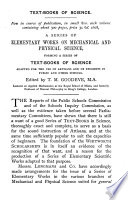 | Henry William Watson - Geometry - 1871 - 320 pages
...together less than the two sides BA and AC. Produce BD to meet the side AC in the point E. Because any side of a triangle is less than the sum of the two remaining sides, n therefore BE is less than BA+AE; add EC to each, therefore BE + EC is less than... | |
| |